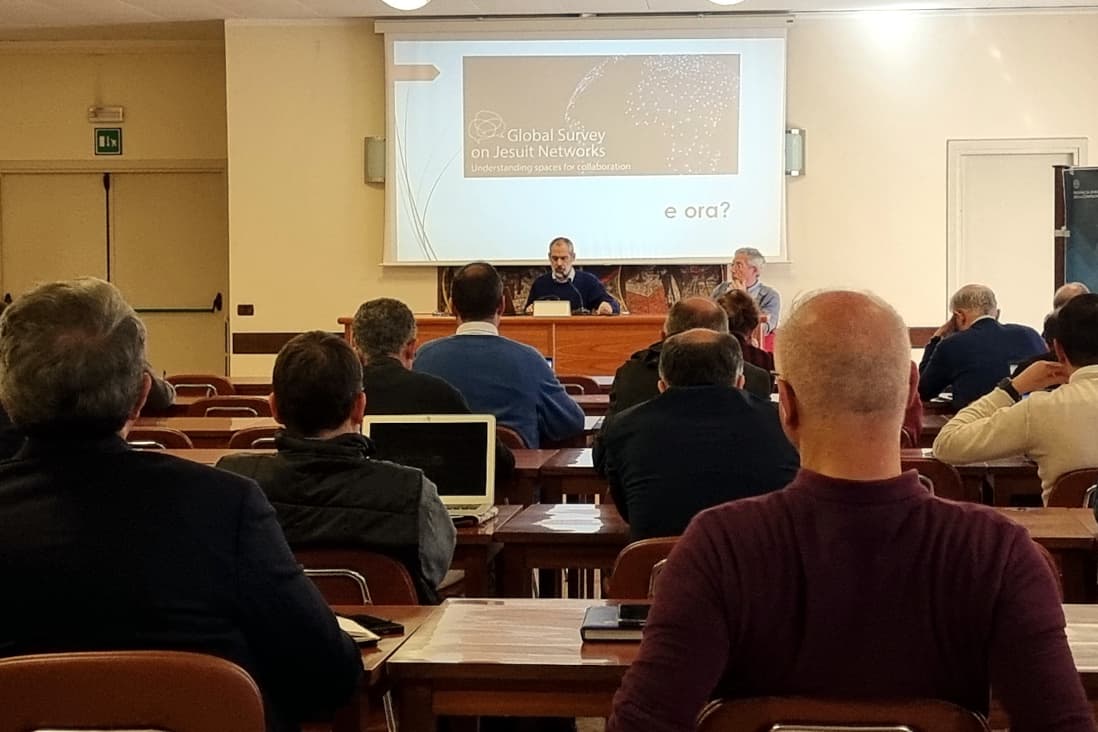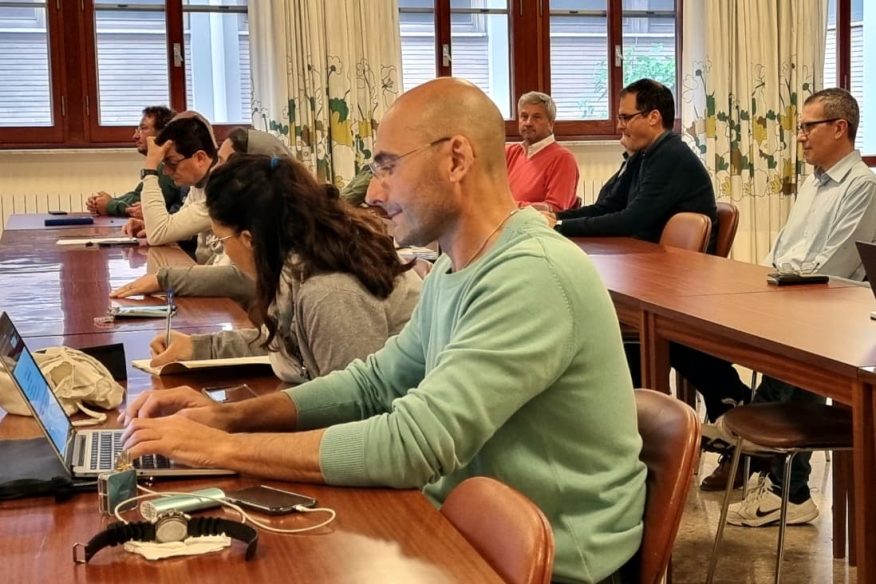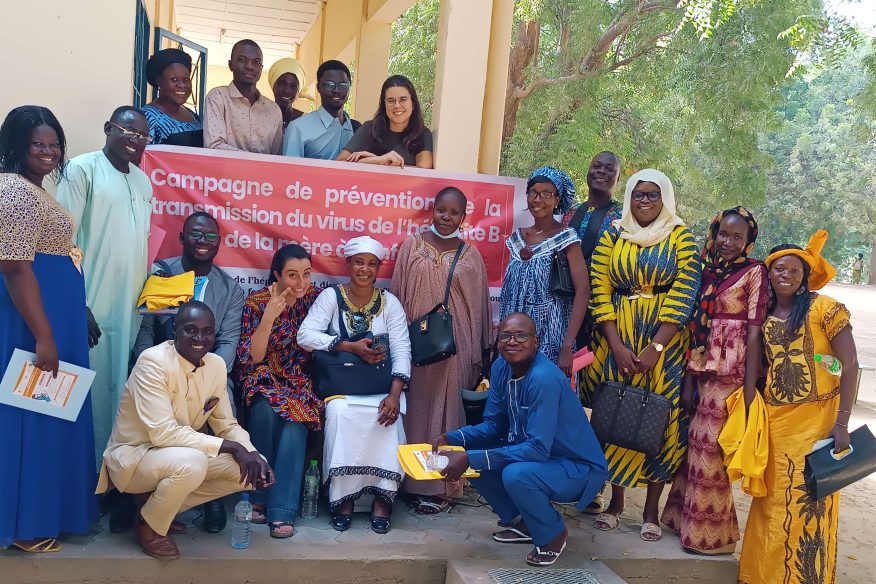Together for the mission: rethinking networking

From 2 to 4 May in Rome the meeting of the EUM directors of works.
To deepen the understanding of the role of the networks in the Province’s way of proceeding, to revive the desire to work in the mission according to a common style, to imagine the perspectives of the existing and future networks. These are the objectives of the meeting of the directors of works of the Euro-Mediterranean Province, which saw in Rome from 2 to 4 May, at the retreat house of the “Handmaids of Christ the King”, about 70 directors from Italy, Malta, Romania and Albania, 40% of whom were lay people.
A three-day meeting with a specific focus on the ongoing work of networking in the youth and vocations apostolate shared by Andrea Picciau SJ and the online testimony of Daniel Villanueva SJ, general coordinator of the International Federation “Fe y Alegria”. In his talk, Fr. Villanueva emphasised the potential of networks not only to be linked to an apostolic dimension but also to activate synergies and collaboration between different realities capable together of providing responses to perceived needs. Networks should not be reduced to mere technical and functional aspects; they will only be effective if there will be deep connection among the participants.
Feedback
The in-depth work continued by areas. “Networking between youth and university pastoral work,” emerged from the group’s summary on young people, “means broadening the horizons of each reality by pooling resources with other works and seizing inspiration to create new things from existing ones. Young people have an ease of movement for study or work that already puts them in a position to live connected. We are called upon to create bridges so that youth can find accept ance and accompaniment. Here is the challenge: to accept the transformations that networking demands”.
Ten years after the first audience that the Holy Father granted to Jesuit schools in Italy and Albania the day after his election, the Jesuit Education network is preparing to meet Pope Francis again on 10 June. Ten years of intense journey among institutions with great tradition and educational competence, belonging to three of the four territories of the EUM Province. Today, for the schools of the FGE, the network is a consolidated reality, which takes on different expressions at different levels from teacher training to pastoral care, and which, among other things, has played an important role in enabling the schools to get through the pandemic by relying on each other.
There are still many challenges: “What is the leadership model that makes it possible to promote a network of institutions with their own needs and traditions of governance?” This was one of the questions that emerged during the Directors’ meeting. The experience of the last few years has brought out the need to let oneself be challenged by the novelty that every experience – involving all the subjects of the network – is capable, by its very nature, of generating, and thus how fundamental it is for everyone to feel involved in a mission that not only precedes, but goes beyond.
From the CIS group, emerged the need for a method to aggregate. Integration with the Family Networks is already underway. Twelve proposals are underway in Italy for the summer. A training course is also being de veloped to accompany married couples. Attention should be given to places, “which have a great significance in the way of giving Exercises” together with the desire to connect Jesuits who are not, keeping in mind possible collaborations with and for other networks.
On the social front, JSN & JRS highlighted the need for lay training and guidelines for networking. On the “culture” front, networking is not intended to be stable and prolonged, but useful for strong and precise collaborations. “Every single work even if well structured is incomplete. We should look for a possible common field of action, for example the area of civic education, which would bring together many different subjects, even beyond the Society”.
For the Treasury’s Group, “the network is a tool that needs clear objectives starting from what exists. It allows alliances helpful for the mission. It is also a resource for the Province in terms of professionalism. It allows us not to be alone and to reach the peripheries”.
Finally, for the parishes and rectories it emerged the common need for a more stable form of communication to exchange ideas, resources to connect people and also parishes and monumental churches.

Finding harmony on how to proceed
“It is a matter of agreeing in harmony,” emphasised Provincial Fr. Roberto Del Riccio. “Not just a change of structures, which would fail before it began, but a change of mentality for a qualitative leap in our mission. We are called to live this transformation bringing with us the experience we have at all levels”. The invitation is therefore to keep all the existing good practices but also to connect realities that are not, to move from hierarchy to networkarchy, which promotes decision-making, always considering the specifics of the single territories. A change of mentality that requires moving from the individual work of people or institutions to a connected work, with shared tools, good practices, perspectives, which re-proposes the challenge of identity and sense of belonging. Finally, we should move from networks that connect similar realities to networks that connect different realities, also sharing part of the training courses.
The apostolic plan, as a framework of objectives, remains a preferential instrument together with a governance structure designed to facilitate, support and accompany these changes, and the care of formation for knowing, knowing how to do, knowing how to be. “At this time,” concludes Del Riccio, “the two processes affecting the Province coincide: that of the apostolic plan and the governance structure. It is important to understand what tools are needed to manage the processes”.
